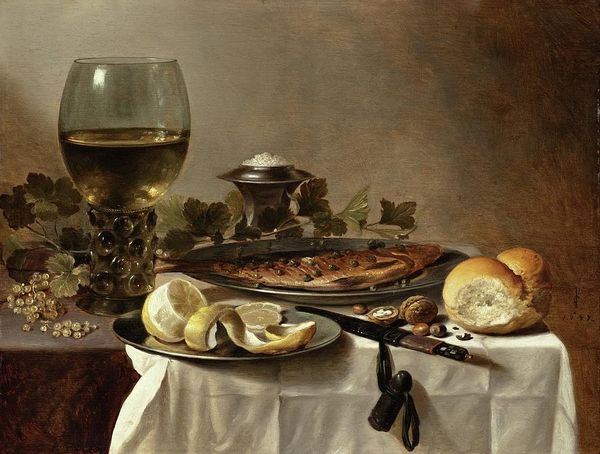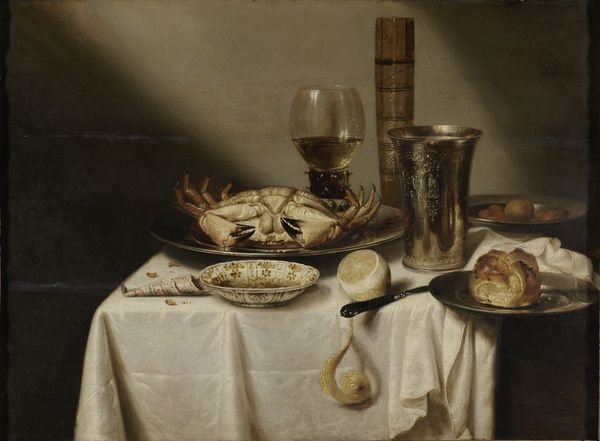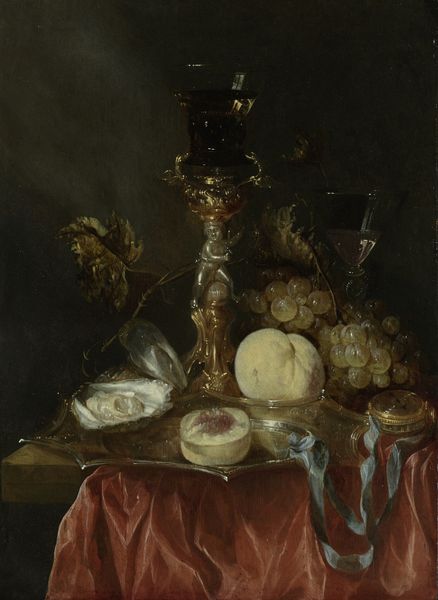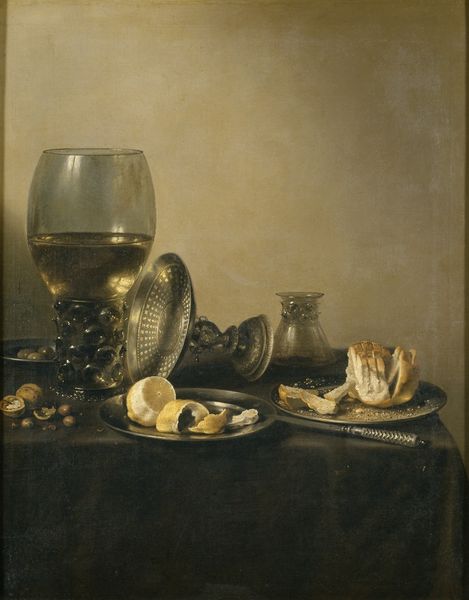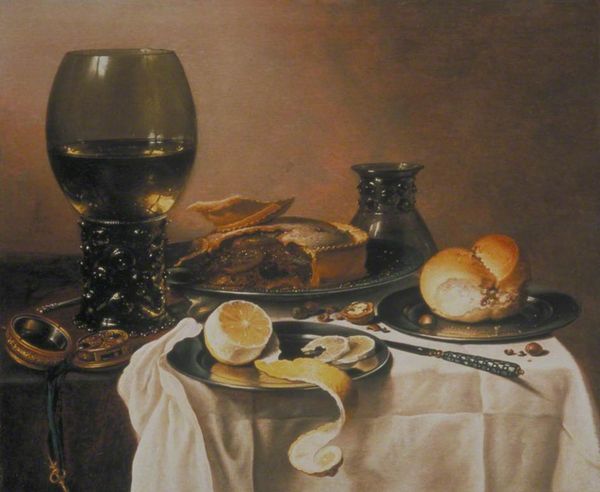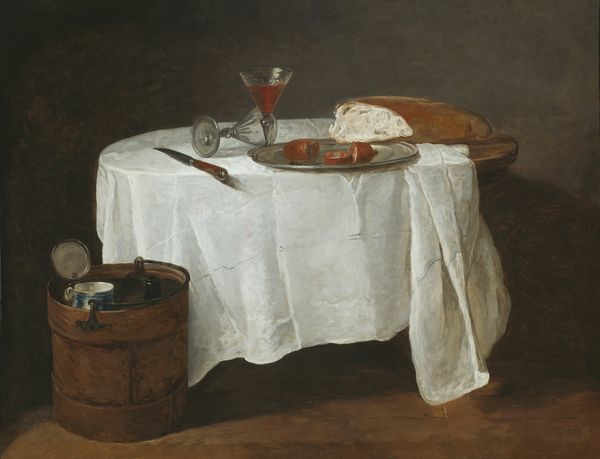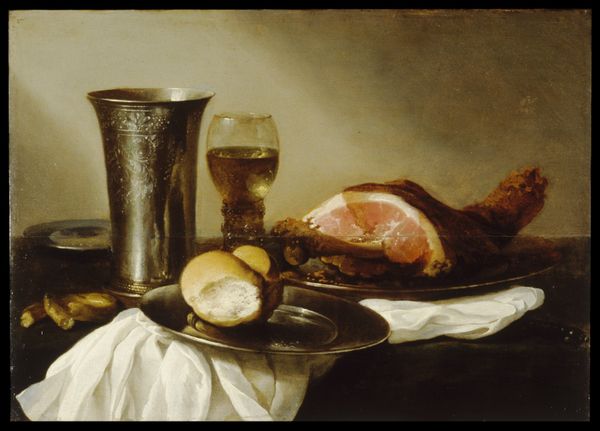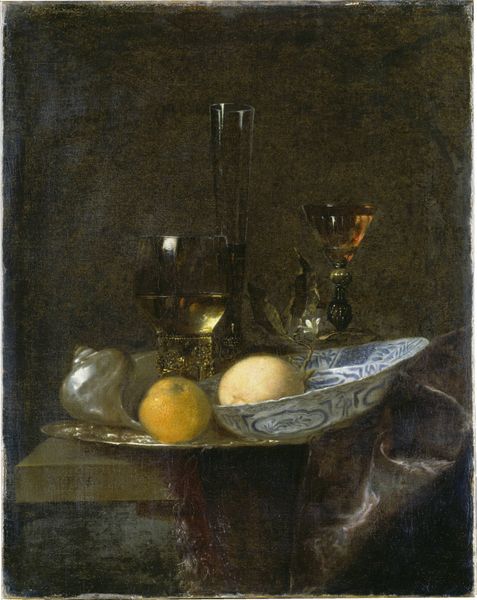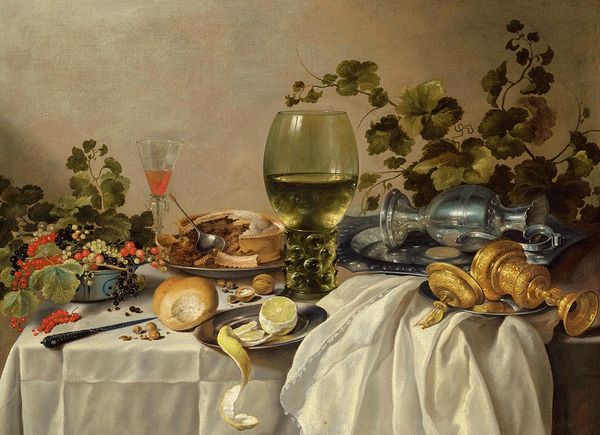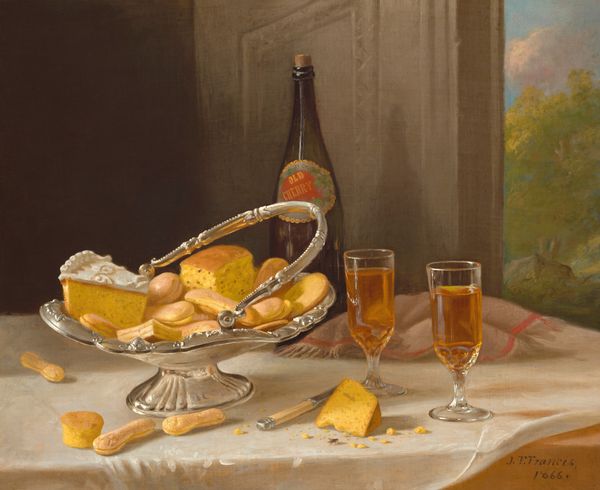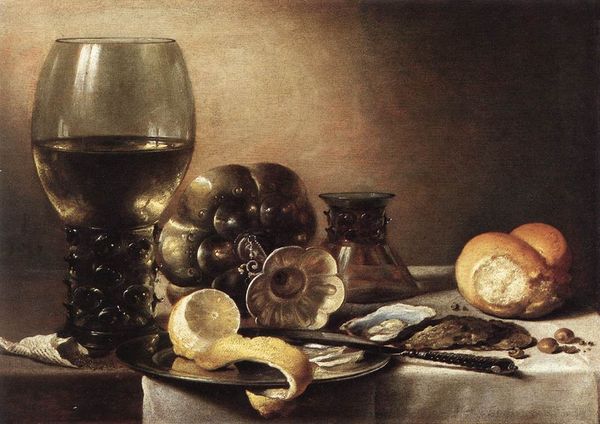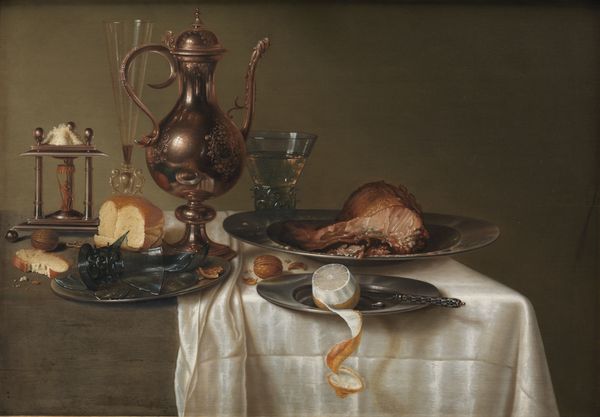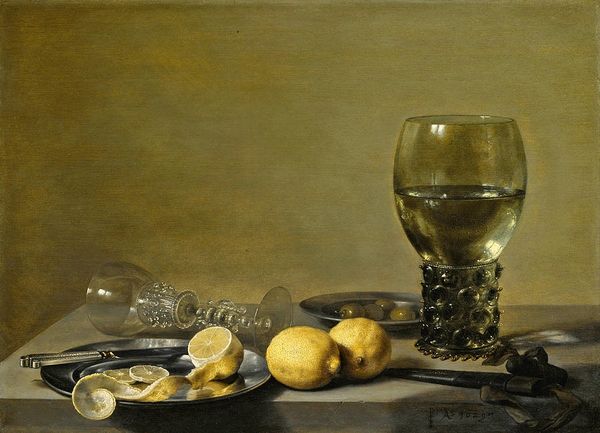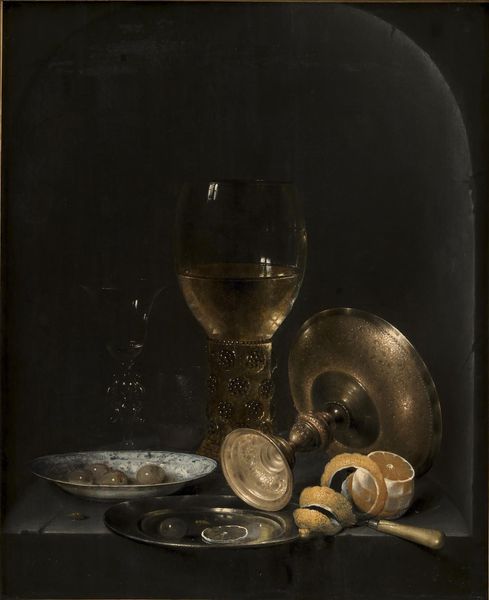
painting, oil-paint, glass
#
baroque
#
dutch-golden-age
#
painting
#
oil-paint
#
glass
#
oil painting
#
realism
Copyright: Public domain
Pieter Claesz painted this still life with oil on panel during the Dutch Golden Age. The arrangement of objects may appear artless, yet the casual placement of the tilted glass, the half-eaten bread roll, and the carelessly strewn nuts create a sense of immediacy. Claesz was among the most influential still life painters in the Netherlands. The development of this genre was closely tied to the social and economic conditions of the time. With the rise of a prosperous merchant class, there was an increasing demand for luxury goods and, consequently, art that celebrated them. Still life paintings were often commissioned by wealthy individuals to showcase their status and taste, reflecting a society that valued material possessions and the pleasures of daily life. By examining these paintings, period documents, and economic data, we gain insight into the cultural values of the time. These objects weren't simply arranged, but rather carefully chosen symbols of a wealthy culture.
Comments
No comments
Be the first to comment and join the conversation on the ultimate creative platform.
